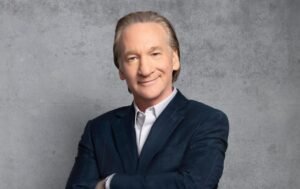Joycelyn Elders Biography
Joycelyn Elders was the Surgeon General of the United States from 1993 to 1994. She is an American pediatrician and public health official. She was the second woman, the second person of color, and first African American to serve as Surgeon General, as a vice admiral in the Public Health Service Commissioned Corps. Elders is best known for her candid articulation of her opinions on matters that were formerly contentious but are now mainstream, such as drug legalization, masturbation, and contraception distribution in schools.
Joycelyn Elders Age
How old is Elders? He is 88 years old as of 13 August 2021. He was born Minnie Joycelyn Elders in 1933 in Schaal, Arkansas, United States.
Joycelyn Elders Education
She earned a B.S. in Biology and pledged Delta Sigma Theta at Philander Smith College in Little Rock, Arkansas, in 1952. After working as a nurse’s assistant at a Veterans Administration hospital in Milwaukee for a while, she joined the US Army as a 2nd Lieutenant in May 1953. During her three years in the Army, she was trained as a physical therapist. She then attended the University of Arkansas Medical School, earning her M.D. in 1960. After completing an internship at the University of Minnesota Hospital and a residency in pediatrics at the University of Arkansas Medical Center, Elders earned his M.S. in Biochemistry in 1967.
READ MORE: Kelly Dudzik Bio, Age, Wiki, WGRZ TV, Ethnicity, Height, Family, Husband, Salary, Net Worth, Awards
Joycelyn Elders Nationality | Ethnicity
What ethnicity is Joycelyn? she belongs to the black ethnicity/heritage, she was born and raised in Schaal, Arkansas, the United States and she holds American nationality.
Joycelyn Elders Family | Early Life
She is the eldest of eight children and the valedictorian of her high school class. She was born and raised in Schaal, Arkansas, USA. She was born into a poor, sharecropping family in the countryside. Before returning to Schaal, the family spent two years in Richmond, California, near a military shipyard. In college, she changed her name to Minnie Joycelyn Lee.
Joycelyn Elders Husband | Married
Joycelyn was married twice. She married Cornelius Reynolds, a Federal employee, for a short time before marrying Oliver Elders, a basketball coach.
Joycelyn Elders’s Net Worth
She has an estimated net worth of $12million.
Joycelyn Elders Books | Author
Elders published a book in an attempt to tell her side of the controversies that surrounds her during her 16-month time as Surgeon General. The Candace Award was given to her by the National Coalition of 100 Black Women in 1991. At SUNY Plattsburgh, she was honored as an honoris causa initiate into Omicron Delta Kappa in 1996.
Joycelyn Elders Sex Education
Elders was particularly concerned about young diabetic women becoming pregnant because he was an endocrinologist. If a young teen woman with diabetes becomes pregnant, her body is more likely to reject the fetus or the fetus is more likely to have abnormalities throughout pregnancy. She informed her patients about the dangers of early pregnancy, the value of contraception, and the importance of taking control of their sexuality as soon as they reached puberty in order to prevent these pregnancies. Only one of the 260 young diabetic women she cared for became pregnant.
Elders, particularly in African American communities, consistently lobbied for sex and reproductive education. She slammed outdated textbooks that claimed that only white ladies had naturally regular periods because white females were using birth control to keep their periods in check. Because “[black] clergymen were up on the pulpit stating the birth control pills were black genocide,” black women were hesitant to seek birth control.
Joycelyn Elders Career
Elders has also served as an assistant professor of pediatrics at the University of Arkansas Medical Center since 1967, receiving a National Institutes of Health career development award. In 1971, she was appointed to associate professor, and in 1976, she was promoted to professor. Her research interests were in endocrinology, and she became the first person in Arkansas to earn board certification as a pediatric endocrinologist in 1978. Elders was awarded a doctorate in science. Bates College awarded him a bachelor’s degree in 2002.
Bill Clinton selected her as the United States Surgeon General in January 1993, making her the first African American and the second woman to hold the office (after Antonia Novello). Elders reacted to criticism at her confirmation hearing over an event in which she chose not to warn the public that condoms her agency had been distributing in Arkansas were determined to be faulty, with a failure rate 10 times the authorized rate. Elders said she “doesn’t know” if the decision was accurate, but she believed at the time that public disclosure may lead to a public loss of faith in condom efficacy, which would have been the greater risk. She was confirmed on September 7, 1993, after being a contentious choice and a staunch supporter of the Clinton health-care plan.
Elders immediately had a reputation as a divisive figure as Surgeon General. She was a vocal supporter of a range of health-related topics, as were many of the Surgeons General before her. She argued that the potential of drug legalization should be investigated and that contraceptives should be distributed in schools. President Bill Clinton defended Elders, claiming she had been misunderstood. Bill Clinton selected her as the United States Surgeon General in January 1993, making her the first African American and the second woman to hold the office (after Antonia Novello).
Elders was named Director of the Arkansas Department of Health by then-governor Bill Clinton in 1987, making her the state’s first African-American woman in this role. Increasing the availability of birth control, counseling, and sex education at school-based clinics; a tenfold increase in early childhood screenings from 1988 to 1992 and a 24 percent increase in the immunization rate for two-year-olds; and an expansion of the availability of HIV testing and counseling services, breast cancer screenings, and better hospice care for the elderly are just a few of her major accomplishments while in office. She also worked hard in public schools to emphasize the importance of sex education, appropriate hygiene, and substance misuse prevention. She became President of the Association of State and Territorial Health Officers in 1992.



